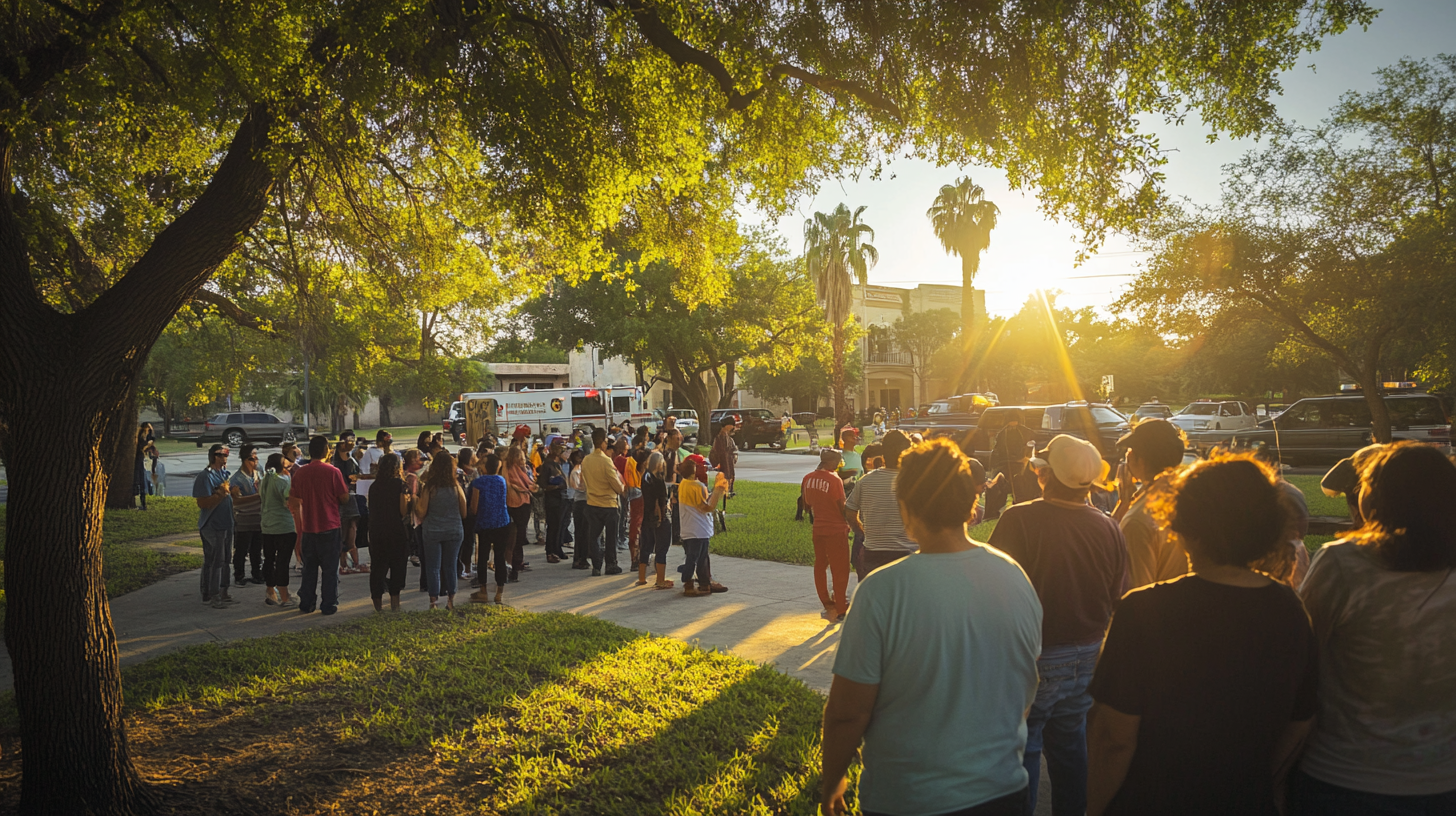Pharr Church Reacts to New Immigration Enforcement Policies
In a deeply interconnected community like the Rio Grande Valley (RGV), recent changes in federal immigration enforcement policies have prompted significant concern. The lifting of protections traditionally afforded to churches, hospitals, and schools as safe zones for immigrants has shaken community institutions. In Pharr, a local church is grappling with the potential implications of these new rules on their operations and community outreach.
Assessing Local Needs Amidst Policy Shifts
Over the weekend, state legislators visited the RGV to assess the area’s needs, hosted by the RGV Partnership, an economic development nonprofit. This visit coincided with U.S. Immigration and Customs Enforcement’s (ICE) targeted operations in the region, highlighting the ongoing federal focus on immigration enforcement.
The removal of protections for sensitive areas is part of a broader policy shift that allows for immigration arrests in places previously deemed off-limits. Pastor Armando Vela of Iglesia Poder De Dios has voiced concerns about how these changes might impact not only his congregation but the wider community. “Church has always been a sanctuary, a safe haven. Now, with these rules, it seems that sanctuary is being threatened,” Pastor Vela expressed.
Community Reactions and Mobilization
In response to the new policies, local advocacy groups such as La Unión del Pueblo Entero (LUPE) have intensified efforts to educate the community on their rights. LUPE’s Director of Communications, Portia Lopez, describes the new policy as “dehumanizing” and indicative of deeper systemic issues within immigration policy. “It’s important for Valley residents to know their rights and to stand firm in the face of intimidation,” Lopez emphasized.
LUPE has organized several “Know Your Rights” workshops across its four locations in the Valley, aiming to empower community members with information and resources during these uncertain times.
Impact on the Rio Grande Valley Community
The RGV, a region rich in cultural diversity and economic activity, faces unique challenges related to immigration. The presence of UTHealth Houston’s new research in Brownsville on human viruses along the border further underscores the RGV’s strategic importance in national health and security.
For local organizations and residents, the changes in immigration enforcement not only pose a threat to community harmony but also to economic stability. Pharr and the surrounding areas rely heavily on the contributions of immigrant populations. “The backbone of our economy and our community spirit can be significantly affected,” noted Sandra Martinez, a Pharr resident and local business owner.
Historical Context and Ongoing Issues
Historically, the RGV’s proximity to the U.S.-Mexico border has made it a focal point for immigration debates and policies. The region has often been at the mercy of federal policies that do not fully consider local complexities. The ongoing discussions around these new rules reflect broader, enduring issues faced by border communities.
In previous years, the RGV has witnessed periods of heightened immigration enforcement, each with its own effects on the socio-economic fabric of the community. The current situation evokes memories of past challenges and the resilience that residents have shown.
Future Implications and Community Strategies
Looking ahead, community leaders and residents of the RGV are considering various strategies to navigate this new landscape. Increased collaboration between churches, advocacy groups, and local governments might be necessary to ensure that community interests are protected.
Local leaders, such as those from the RGV Partnership, are also exploring how economic development initiatives can continue to support a diverse community amidst policy shifts. Highlighting the ongoing importance of the RGV, from virus research to sports and cultural events, keeps the focus on the region’s potential and need for supportive policies.
Resources and Support for Valley Residents
For those seeking further information or assistance regarding the new immigration enforcement policies, LUPE remains a primary resource. Their workshops and advocacy efforts offer critical support.
Additionally, concerned residents are encouraged to reach out to local representatives and participate in community forums facilitated by the RGV Partnership and other local organizations. Staying informed and engaged is key to mitigating adverse effects and fostering a supportive community environment.
In conclusion, the RGV stands at a critical juncture. As the community braces for future developments, staying united and resourceful will be essential in managing the impact of changing immigration policies.







